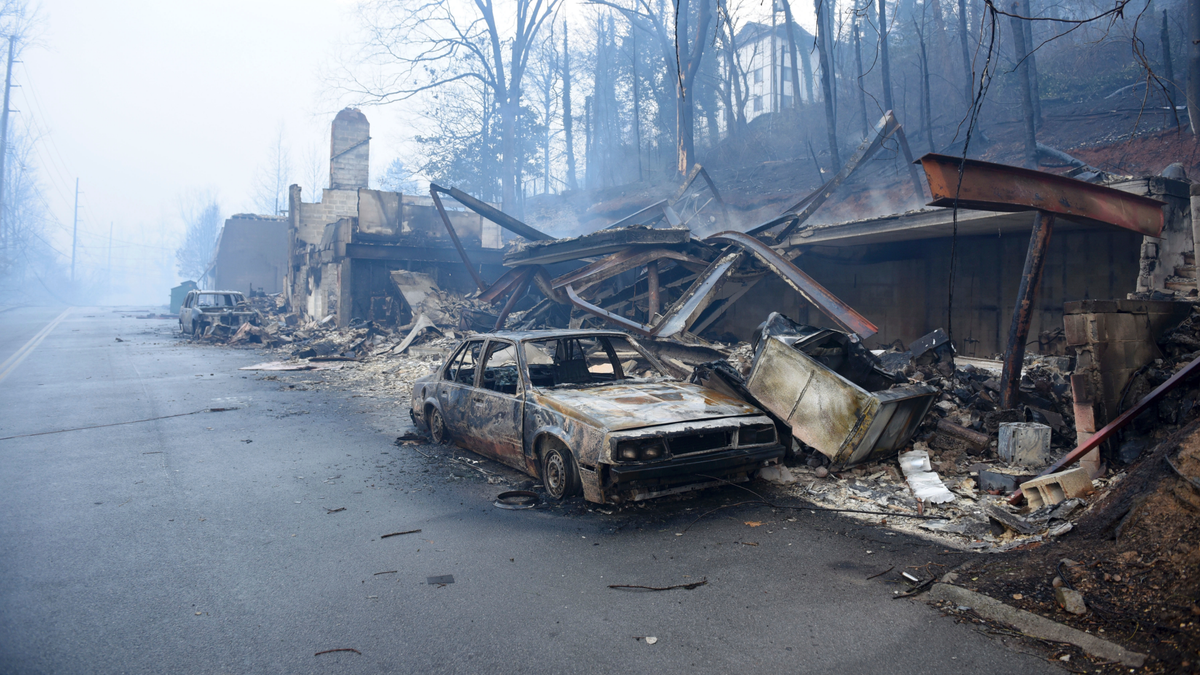
KNOXVILLE, Tenn. – Two survivors of deadly Tennessee wildfires that began in Great Smoky Mountains National Park have sued the federal government, claiming they lost loved ones and a home because of the negligence of park workers.
The lawsuit in Knoxville was filed Wednesday by the two victims of the November 2016 Gatlinburg area fire: Michael Reed, whose wife and two daughters died, and James England, whose home burned down. They seek a combined $14.8 million in damages.
They blame their losses on claims that federal parks employees violated established fire-management policies, failed to prioritize the safety of citizens and property, and failed to notify and warn of threats posed by the fire.
The Park Service declined to comment.
The lawsuit claims that park senior leaders decided to contain, and not extinguish, the fire in the park despite extreme drought conditions. The plan to keep the fire within a 410-acre (165-hectare) area was a "debacle of historic proportions," the lawsuit adds, arguing the decision not to put out the fire was taken because steep, rocky terrain posed a safety risk to firefighters.
"These failures notably included their blatant disregard of mandatory requirements to monitor the Chimney Tops 2 Fire for five consecutive days and their failure to notify or warn local governments, park neighbors, local residents and visitors of the absolute and imminent danger the fire posed to them," the lawsuit states.
Hurricane-force winds blew embers from the park into Gatlinburg and downed power lines, sparking more fires. Fourteen people died and about 2,500 buildings were damaged or destroyed.
Spokeswoman Dana Soehn said the Park Service doesn't comment on active litigation.
Park officials found the fire on a Wednesday, but left it unmonitored and unattended in the overnight hours of five consecutive nights to discover the blaze had grown from less than an acre to between 250 and 500 acres (100-200 hectares), according to the lawsuit.
National Guard helicopters and air-tankers weren't used for the first four days because park fire management officer Greg Salansky concluded the fire wasn't big enough to warrant that expense, and had concerns about polluting the environment and drinking water supply downstream, the lawsuit says.
On that Monday, a Gatlinburg Fire Department captain called the park to ask about thick smoke pouring into the city, according to the lawsuit. It said Salansky advised him that everything was under control and no help was needed, even as the fire sped toward Gatlinburg, the lawsuit says.
Authorities have said two juveniles started the fire in a remote section of the park. The blaze left the park five days later. Local prosecutors dropped charges against the boys in June because other fires from downed power lines contributed to the inferno in Gatlinburg.
A previous outside review ordered by the city of Gatlinburg and Sevier County found that reliance on limited information from the National Weather Service and park officials meant that the predicted speed and severity of the impending firestorm was inaccurate.





















